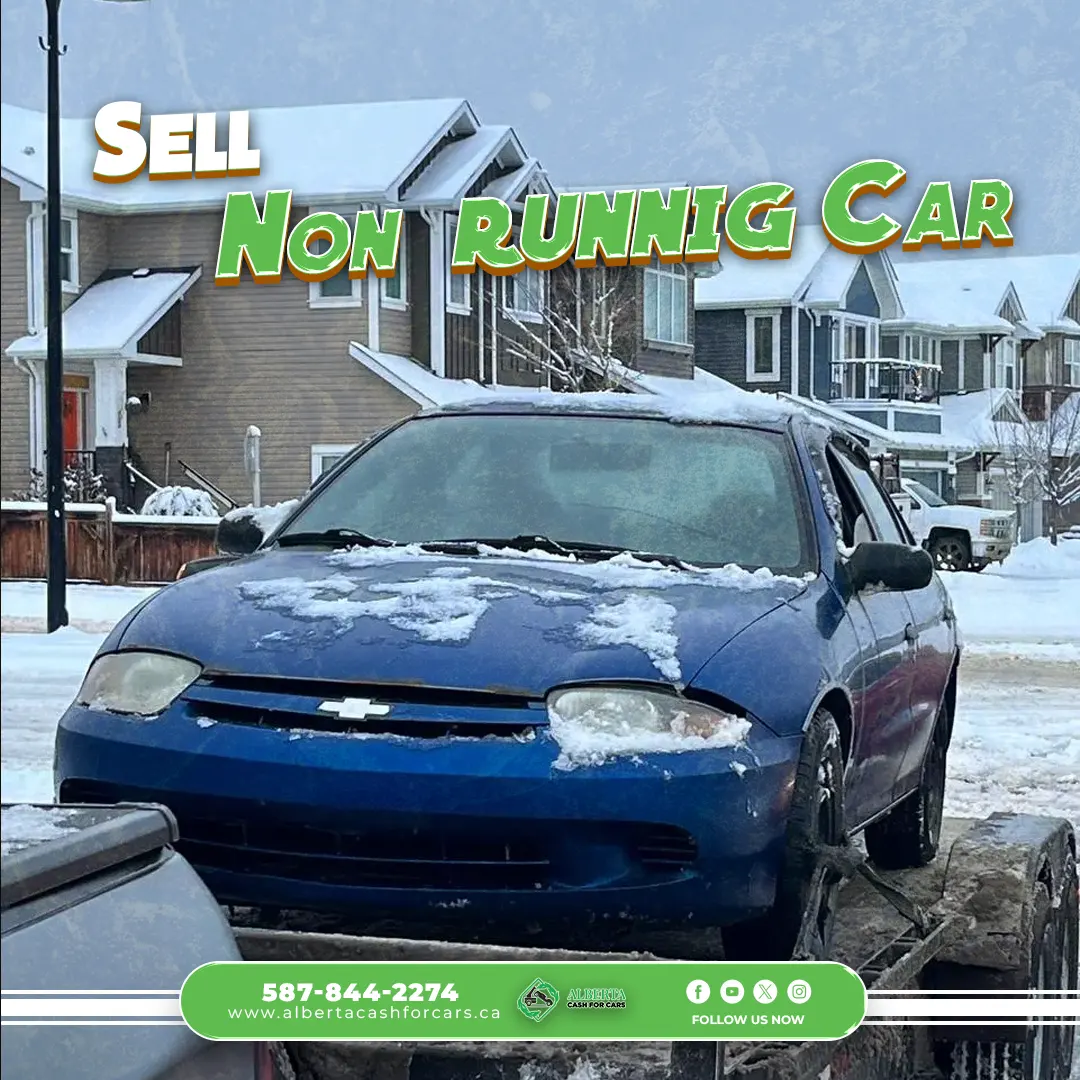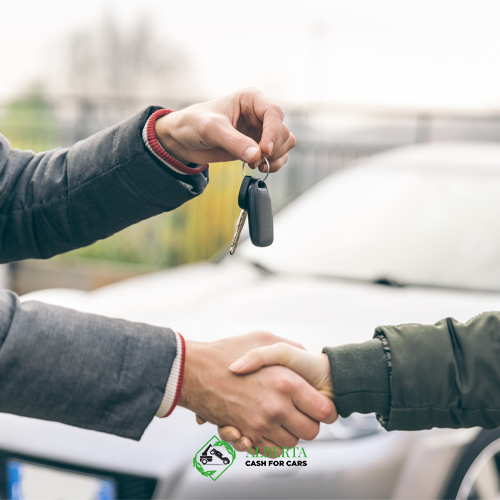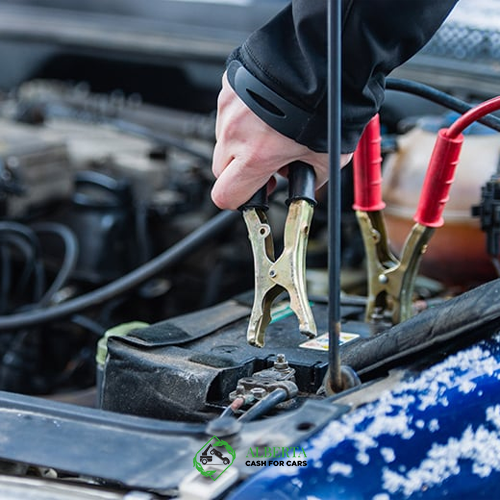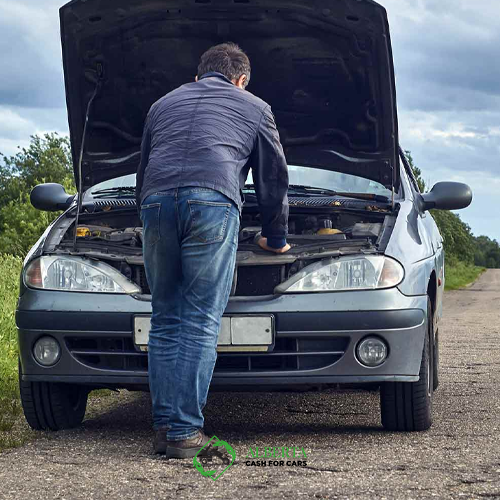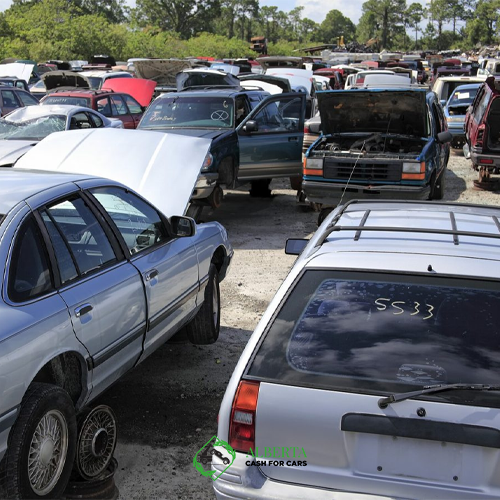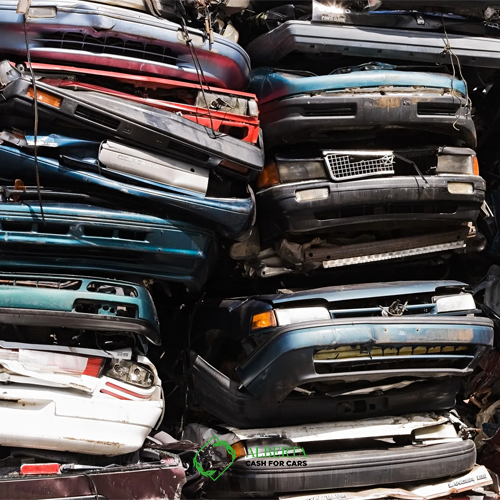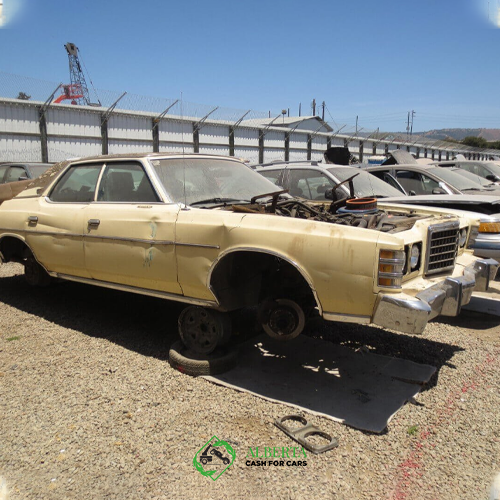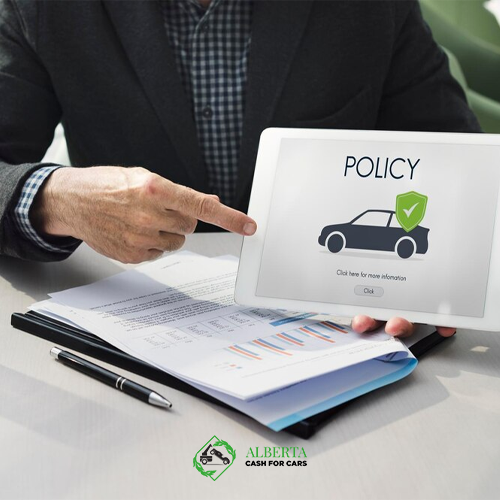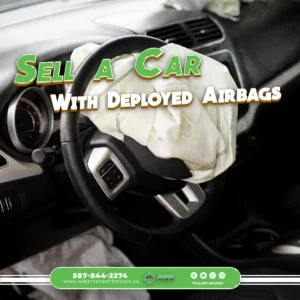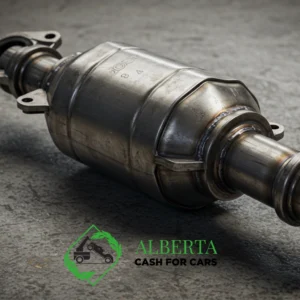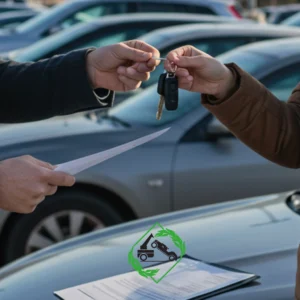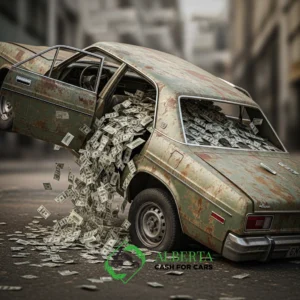Many vehicles eventually reach a point where their functionality diminishes over time. This decline can be caused by deteriorating mechanical components, engine malfunctions, or other issues. The good news is that a car that has become inoperable has not lost all of its value. Should a repair not be unattainable, the option remains to get cash for cars Calgary by selling the inoperable vehicle. If your intention revolves around sell non running cars, perusing this article is advisable. Inside, you’ll discover strategies for maximizing your car’s value.
No Hassle, Just Cash — Book Your Free Pickup or Quote Today!
What does a non-runner car mean?
A non-running car is a car that does not work, and measures must be taken to get it back on the road. It may be that its engine is broken or its gearbox, even though you may not know exactly what is wrong with the car. For a non-running vehicle to be able to return to the road again, it requires restarting operations, resulting in a significant investment in time and cost.
Why would someone want to sell a car that doesn’t run?
When a car breaks down, you may not have the necessary tools and resources to repair it. Most people who have non-running cars postpone their repairs because they prefer not to spend their money on these repairs. They realize the damage is so extensive that the vehicle is not worth the repair cost.
Nowadays, many people would rather buy a new vehicle than spend money on repairing an old car that is not a runner. If you can Sell non running car and buy a newer model with fewer problems, it’s better to do so.
Common reasons a vehicle won’t run
Many reasons can lead to a car not running, from simple problems to more serious mechanical problems that can be expected to make a car not running. In the following, we will state the most common reasons that cause the car not to run:
Fuel system problems
Problems with the car’s fuel system can make it difficult to start the car or cause it to perform poorly. As a result, the fuel filter is clogged, the fuel pump malfunctions, or there is a problem with the fuel pressure regulator.
Car engine problems
A blown head gasket, a damaged timing belt, or a stuck engine are examples of engine problems that can cause a car to stop running.
Vehicle electrical system problems
Your car may not start due to an electrical problem preventing the battery from getting power to the engine. Before you start looking into selling a running car for cash, you should probably check to see if your car needs repairs. Electrical issues can often be complex, so getting a professional diagnosis might save you time and money. Addressing these problems could potentially improve your chances of getting a better price when selling.
Excessive heat
If your car’s engine gets too hot, it may not start or fail while driving. This can be caused by several problems, including an inefficient radiator, a faulty water pump, or a cooling system allowing water to leak. Overheating can lead to severe engine damage, so it’s important to address these issues promptly. Repairing or maintaining the cooling system can help preserve the vehicle’s value and appeal to potential buyers.
Broken battery
If the car battery is dead, starting the car can be impossible or difficult. Worn-out batteries, broken alternators or forgetting lights and accessories are all possible reasons. A dead battery might be a simple fix, but if the car has other underlying issues, it might be worth evaluating the overall condition. Replacing or repairing the battery can make the car more attractive to buyers and improve its market value.
Related Post:
Understanding and Addressing +10 Common Car Issues
What is the estimated value of a non-running vehicle?
The Sell non running car value depends on many factors. You can generally get a few hundred to a few thousand dollars in cash for a car that doesn’t work. Your car can be worth more if it’s in good condition, even if it’s not running. For example, if your car has an advanced stereo system or expensive wheels, you can get a higher price for it.
The important thing is that you should remember that your car’s value, even if it doesn’t work, ultimately depends on your buyer. Private buyers may pay more for your vehicle than scrap yards or dealerships, but they are harder to find.
Factors affecting a Sell non running car value
Age: The car’s age is an important factor determining the Sell non running car value. The car’s value can be increased even if it does not work or considering the year of its manufacture. Classic or vintage cars may indeed be worth more because of their age, but this is only sometimes the case.
Location: The location of the car is another factor that affects the value of the car. For example, there may be areas of Canada where the demand for junk cars is higher. Also, the value of a car that is not running may be reduced by local laws.
Model: The car brand is a factor that greatly impacts its value, even if the car does not work. Considering the car is not running, some cars are worth more than others. For example, a Mercedes-Benz or a BMW without operation can be worth more than a Toyota Corolla without operation.
Condition: The condition where the car is currently kept is a necessary and important factor. The value of a car that is in poor condition can be lower. The interior space and various mechanical components of the car all affect the overall condition of the car, so the value of the car can change.
How to estimate non running car value?
In this section, there are steps that you can use to estimate the non running car value:
Gather quotes
Doing some quick research can provide a reasonable estimate of the non running car value. Contact local salvage yards, auto recyclers, or junk car buyers, they can estimate your non running car value based on its model, year, and specific condition. Online valuation tools are another option that you can consider, in this way you have to enter the details of the car and they will offer you the price of the car as it is. Getting multiple estimates from these tools can give you a useful value range. As a result, you can set an informed asking price and negotiate effectively.
Estimate repair costs
Consider possible costs associated with restarting the vehicle. If the cost of repairs and parts is much higher than the value you are going to get from selling the car, it is probably not worth investing in car repairs. Keep in mind that in this way you are going to spend your time as well as money.
Check the market value
A non-running car is usually worth less than a drivable car. A general rule of thumb is that a non-running car is only worth 20-40% of the value of a drivable car. Also, keep in mind that the actual value can vary depending on factors such as the condition of the parts and body of the car.
Consider repair feasibility
Check why your car is not running. If the problem is simple and not expensive to fix, such as battery problems, it may be worth repairing. If your vehicle is facing bigger problems like the engine or has been depreciated over time, its expensive repairs are not economically justified for you.
Explore selling options
After researching repair costs and potential resale value, consider your options for selling your undriveable car. If you think that the repair price is more than what you are going to get by selling it, it is better to sell the car in whatever condition it is. In this way, you can check online markets or local occupation stores.
Selling Undriveable Car Online
Online Platforms Many websites like Peddle, Craigslist, and Facebook Marketplace enable selling undriveable cars online. These sites make it easy to create listings with photos/details and connect with buyers nationwide. Marketplaces focused specifically on salvage and rebuilt vehicles also exist. Sellers should search for the platform best matching their title status, location, and target buyers.
Effective Listings Creating an engaging ad is critical when selling undriveable car online. Compelling titles and eye-catching photos depicting damage help grab attention. Detailed vehicle descriptions should transparently communicate condition issues while still marketing effectively. Share VINs and title status upfront while expressing willingness to provide further documentation. Respond to inquiries promptly and avoid pressure tactics. This fosters trust in buyers reluctant about undriveable vehicles. Uploading inspection reports also demonstrates good faith.
Ways of Sell non running car
Private sale: When you decide to cash for non-running cars, you may want to advertise it and sell it privately. When selling your car this way, being honest about the car’s condition will help build trust in your relationship with buyers and increase your chances of a sale. Regardless of the car not turning on, you can rely on other good features, such as unique options or excellent payment. If you’re aiming for an immediate sell my car Alberta, highlight this urgency in your listing to attract quick buyers who are ready to close the deal swiftly. Offering competitive pricing can also speed up the process and make your listing stand out.
Selling to scrap yard: If you can’t find a buyer to sell your broken car, contact a junkyard. Due to the high demand for used vehicles, junkyards buy them regardless of their condition. Some of them even do the towing process for free. For an immediate sell my car Alberta, junkyards are a reliable choice as they often offer fast transactions and quick cash payouts. Additionally, many scrap yards can handle the paperwork for you, making the process even more convenient.
Part out your car: Sometimes, selling car parts can bring more money than traditional selling. Certain vehicles can have parts in short supply or high demand; if that’s the case, you can get more money. Before selling each piece, you must clean it and take pictures of them so that you can put them on websites. For an immediate sell my car Alberta, focus on listing high-value parts first to attract buyers quickly and expedite the selling process. This approach can also help you secure better prices for individual components.
Donate to charity: If your car is in bad condition and you cannot find a buyer or are looking for support, you can donate it to charity. Many organizations accept non-running cars and provide tax deductions in return. If you’re seeking an immediate sell my car Alberta, donating can be a swift solution, and some charities even offer free pickup services to make the process easier. This option not only helps you get rid of your car quickly but also benefits a good cause.
Related Post:
A Complete List of Things to Do Before Selling Your Car
How to sell non running cars?
Sell non running cars stressful. In this way, finding a buyer may be accompanied by many challenges. It doesn’t matter if the reason for selling the car is mechanical problems or the old age, in any case, understanding why your car is not working can have different effects on your selling process. In this section, we will tell you valuable tips about how to sell non running cars.
Evaluation of inactive vehicle condition
When sell non running cars, it is very important to accurately evaluate the condition of the car. In fact, the mechanical and electrical evaluation of the car is very important. In this section, there are some points that will help you to identify the amount of damage or necessary repairs:
- Visual inspection: With this, the exterior and interior of the vehicle can be seen for any type of damage and you can assess signs of wear and tear. Check for dents, rust or scratches on the body, as well as broken and missing parts.
- Engine diagnosis: If possible, you can ask a professional mechanic or a car expert to check the condition of the car’s engine. They can check and identify possible problems such as a blown head gasket, a blocked engine or any other mechanical issue.
- Electrical systems: Test the car’s electrical components such as lights, radio, air conditioning, and power windows. Any type of inefficient system should be your concern.
- Vehicle fluid level: check the level of fluids such as engine oil, coolant, brake oil and gearbox oil. Low levels of contaminated fluids can indicate more serious problems.
- Diagnostic tools: You can use diagnostic tools to retrieve fault codes stored in the vehicle’s computer system. These codes can provide you with valuable information about the condition of the vehicle and possible problems.
By fully evaluating your vehicle’s condition, you can better understand its repair needs and potential market value.
Are cars that don’t work worth less?
It must be said definitively that idle cars are worth less than running vehicles. The reasons for this difference are very clear. Unwanted devices that are running can usually be restored with repairs or new parts, but inactive cars usually require a lot of investment to get back on the road.
Can someone else sell my undrivable car?
Yes, someone else can sell the car on your behalf, this person can be your spouse another family member, or even your friend. However, in such a situation, you should make sure that the correct documentation is in place.
What documents are needed so that someone else sell my undrivable car?
If a family member or a friend is going to sell your car, you must give them a power of attorney or provide them with a letter of approval. Other identification documents are also required, which may vary from state to state. In general, the person who is going to sell your car should also have all the car documents.
What happens if I don’t repair the car damage?
In this situation, you can sell your car, but its problems can be challenging and limit you in terms of car buyers. For example, if you are planning to sell your undriveable car, it is unlikely that you will be able to do this with a private buyer. This condition limits you to tradesmen and mechanics.
It is best to be completely honest when advertising your car. Also, list any damage it has so buyers know what to expect.
This will save you and the buyers time. If the buyer comes to visit the car, he knows exactly what to expect, otherwise, if he suddenly encounters problems with the car, he may give up on the purchase.
The price of the car should also be determined based on this issue. A car with a lot of problems that will cost a lot to fix isn’t worth buying, so you may need to drop your price if you want a deal.
Tips for Negotiating the Best Price for Your Non-Running Car
Selling a car that doesn’t run can be a daunting task. However, with the proper approach, it is possible to secure a good deal. Here are some tips to ensure you get the best price when you want to sell car not running:
- Understand Your Car’s Value: Research the market value of similar non-running cars. Use online listings or consult local junkyards to get an estimate. Knowing your car’s worth gives you leverage during negotiations.
- Get Multiple Offers: When attempting to sell a non-running car, don’t settle for the first offer you receive. Instead, it is recommended to contact multiple buyers, including those from junk car removal companies, salvage yards, and private buyers, to compare prices. This ensures you get the best deal when you decide to sell car not running.
- Be Honest About the Condition: Ensure that the information provided about the vehicle is clear and detailed. Buyers appreciate transparency and may be more willing to negotiate if they feel you’re being upfront.
- Highlight Valuable Parts: Emphasize any parts that are still in good condition, such as tires, batteries, or electronics. These can increase the value of your car, even if it’s not running.
- Negotiate with Confidence: It is advisable to feel confident when negotiating the terms of a transaction. Use your research and multiple offers to support your argument. Buyers often expect some negotiation.
Legal Considerations for Selling Undriveable Car
Title Status The legal status of a vehicle’s title determines whether it can be legally driven or sold. Cars with clean titles have no issues, while salvage, rebuilt, and junk titles indicate different levels of damage.
Salvage titles are issued when the vehicle is deemed a total loss by an insurance company. This usually occurs when repair costs exceed the car’s pre-accident value. Salvage title cars can be rebuilt and relicensed for road use if repairs meet state requirements. Selling requires disclosing the salvage branding.
Rebuilt titles indicate the car has been repaired and certified for road use after being issued a salvage title. State procedures must be followed to get this designation. Sales still require disclosure.
Junk titles signify the vehicle is only valuable for parts or scrap. These cars cannot be registered and are not intended to be rebuilt or driven. Sales options are limited for junk-titled cars.
Understanding title designations is vital when attempting to selling undriveable car. The ability to drive and sell the car legally depends on meeting regulations tied to its title status.
Safety Precautions When Selling a Non-Running Car
Selling a non-running vehicle requires careful consideration, especially when it comes to safety. Here are some essential precautions to take when you decide to sell undriveable car:
- Choose a Safe Meeting Location: Always meet potential buyers in public, well-lit areas. This helps ensure your safety and discourages any suspicious behavior.
- Be Honest About the Condition: Transparency is key when you sell undriveable car. Clearly communicate the vehicle’s issues, including mechanical problems or parts that may be missing. This honesty builds trust and can lead to a smoother transaction.
- Secure Your Personal Information: Before you sell undriveable car, remove all personal items from the vehicle. Make sure there are no documents, receipts, or personal belongings that could expose your information.
- Prepare Necessary Documentation: Gather all important paperwork, such as the car title and any repair history. Having these documents ready shows professionalism and can expedite the sale process.
- Screen Potential Buyers: Whenever possible, bring a friend or family member along when meeting buyers. Their presence can add an extra layer of safety during negotiations.
- Consider Payment Options: Opt for secure payment methods, like bank transfers or cash, to avoid scams. Be cautious of checks, as they can bounce.
By following these safety precautions, you can minimize risks and ensure a safer experience when you sell undriveable car. Prioritizing safety allows you to focus on getting the best value for your vehicle.
Salvage titles and the impact on the sell undrivable car value
A salvage title is put on to a car that has been considered useless by an insurance company after suffering major damage.
A sell undrivable car value is severely and frequently negatively impacted by a salvage title. This is mainly because there are several standards that potential purchasers take into account when assessing a vehicle for purchase.
- First of all, buyers are sometimes discouraged by the perceived danger attached to a salvage title. Since the title itself shows that the car has had extensive damage and repairs, buyers might be worried about the car’s long-term safety and dependability. Even in cases where expert repairs were made and the vehicle is approved for use on public roads, questions remain concerning potential problems that may not be immediately evident.
- Second, compared to a car with a clean title, the sell undrivable car value with a salvage title is substantially less. The negative connotation associated with salvage titles and the perceived risk are the main causes of the decreased value. Even if the vehicle looks to be in good condition and has undergone considerable repairs, buyers frequently show reluctance to pay a price equivalent to that of a clean-titled car.
- Moreover, full coverage for a car with a salvage title may be harder to get by from insurance carriers. This restriction may further narrow the pool of possible customers because many people would rather have full coverage for their cars.
Environmental Impact of Selling Non-Running Cars
Selling a non-running car can have a positive impact the environment in several ways. By choosing to sell non running cars, you can play a role in reducing waste, conserving resources, and minimizing pollution. The following are some of the ways this can be achieved:
- Recycling Opportunities: Non running cars contain valuable metals like steel, aluminum, and copper, which can be recycled instead of mined anew. Recycling these materials is a more energy-efficient process than mining and refining raw resources, significantly lowering greenhouse gas emissions and reducing environmental strain.
- Prevents Hazardous Leaks: Abandoned vehicles often leak harmful substances, such as motor oil, coolant, or battery acid, which can seep into the soil and contaminate local water supplies. Selling a non running car ensures that these substances are responsibly removed and disposed of, protecting ecosystems and public health.
- Reduces Landfill Waste: The disposal of a car in a landfill contributes to overflowing waste and long-term pollution concerns. Landfills are not designed to handle large automotive waste, and these vehicles take years to break down, releasing toxins in the process. By choosing to sell non running car you can ensure that parts and materials are reused or recycled efficiently.
- Supports a Circular Economy: The sale of sell non running cars and their components, such as engines, tires, and batteries, can be refurbished and repurposed. This practice supports sustainable manufacturing by reducing the demand for new parts, lessening industrial waste, and conserving natural resources.
Finding the Right Outlet: Where to Sell a Non Running Car
When faced with the challenge of where to sell a non running car, it’s crucial to explore all available avenues to maximize your return. While private sales and scrap yards are common options, they may not always yield the best results. For those looking for a streamlined and efficient process, companies like albertacashforcars.ca offer a compelling alternative. We specialize in purchasing vehicles in any condition, including non-running cars, ensuring a hassle-free experience for sellers. Our approach eliminates the need for lengthy negotiations and costly repairs, providing immediate cash and free towing services.
Additionally, we handle all the necessary paperwork, simplifying the transaction and saving you valuable time. By choosing us, you can avoid the uncertainties of private sales and the potentially lower offers from scrap yards. We understand the value of non-running cars and offer competitive prices based on the vehicle’s condition and market demand. Our commitment to transparency and customer satisfaction makes us a reliable choice for anyone wondering where to sell a non-running car.
Conclusion
Your non-running vehicle can be worth more than you think. You will realize the value of this car when you find the right buyer. We can ensure that all our customers will receive competitive vehicle prices. You can contact us through the website for more information about cash for non-running cars.

